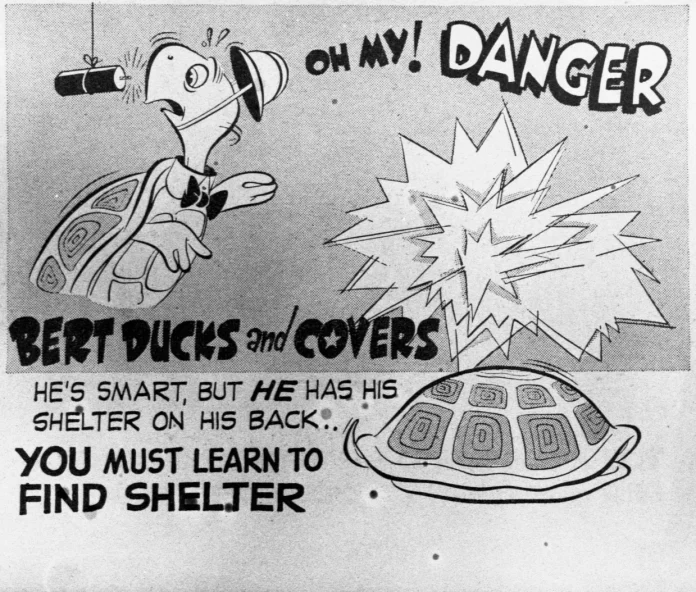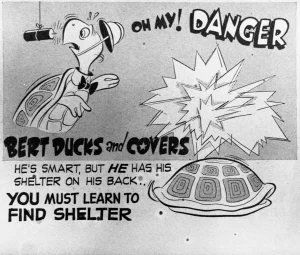The contrived media world anxiety about a Russian invasion of Ukraine set me back to recalling what it was like when America feared a nuclear attack by the USSR during the Cuban missile crisis in 1962. I was a sophomore in high school. We didn’t have hiding-under-desks drills like we did in First Grade, when I was 6, (1952) but even then I only remember one or two.
That was after Russia set off their first A-bomb test in 1949, after having stolen out secrets. President Harry Truman set up a Civil Defense program to deal with the possibility of a Russian attack. Unlike a fire drill, the school bell would ring and instead of marching out of the room, out one of the doors at the front or back of the building, Teacher would simply tell us to hunker down next to our desks. Then she read something to us. I guess it was one of those “In case of…” messages.
There were no handouts to take home to our parents.
Like I said, there were only two, maybe three of these drills, and nobody was the least bit afraid, or unnerved. Nobody started crying.
Six-year olds never put two-and-two together, so never stopped to think, but the drill was probably low-key since “Russia” (which we actually called the USSR then) didn’t have any delivery system other than bombers, their only one in 1950 being the TU-4, which was a copy of the US Air Force B-29, which dropped The Bomb on Hiroshima. It was a propeller-driven job and most of the US was out of range. And who would want to bomb a mountainous region of Appalachia.
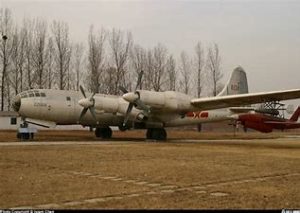
Moving into high school, My dad, a mine engineer, was appointed to the area Civil Defense council, since our coalmine tunnels, with easy access, were filled with fresh water, and could shelter thousands indefinitely. They were a lot like the subway tunnels of London, which sheltered the city during the German Blitz of 1940. His job was to plan for access and supply.
He had one of those silly looking helmets and everything.
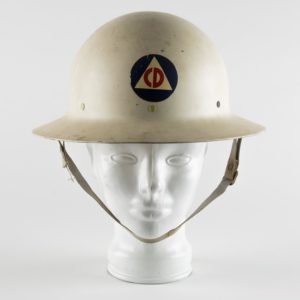
Having the Bomb, the USSR move ahead aggressively with the things they were good at, such as big-muscle tanks and cannon, and by 1960, just 10 years later, short-range and intercontinental missiles. The “arms race” they called up, and America followed it in the newspapers and on Big TV; NBC and CBS (ABC was just a baby then.) By 1960, with JFK coming aboard to replace Ike, the need to do “duck-and-cover” drills in schools were discontinued, considered unnecessary because we had developed early-warning systems and a missile shield to shoot down Soviet missiles.
But unbeknown to people from the interior of the country, several parts of the country continued these drills into the 70s, even 80s, or so is reported via Google.
You might search “duck and cover” yourself, for some modern historians, who always seem to get top billing on Google and Wikipedia, report that parts of “America” was in a “panic” over the missile threat from Russia while most of America in fly-over country was totally unaware. I don’t recall any national panic during the Cuban Missile Crisis in 1962, through 7 years at the University of Kentucky, never knew of a single New England student who came to school there because his/her town in Massachutts, New York, Jersey, Pennsylvanie were ground zero for Soviet missile targeting. I assume these “panics”, if they could actually happened, and you could map them, would track well with the original nesting sites of the anti-war movement, (Left Coast, East Coast) and Ivy League leftist universities.
Why this is an important historical reflection is that when I was in First Grade, in 1952, the local actual process of “duck and cover” were determined by local schools, since every school was different (desks, tables) including the buildings themselves. So, the directives were general, leaving it to the school to determine how to run the drill, without the approval of an overseeing state bureaucrat, and certainly not a federal one. But parents, through the PTA, were fully aware.
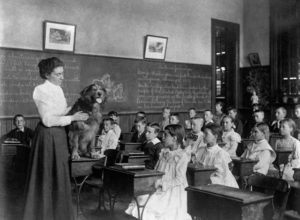
And fully on board.
But jump forward 20 years, and some school boards were submerged in political agendas, some of them paid. Try to recall the way New Jersey school principal Joe Clark (“Lean on Me”- portrayed by Morgan Freeman in the film-1989) was treated by several mouthy liberals, both black and white, when he got tough on drugs, violence, and failing grades.
In the 1980s there were no police to shush the (paid) spokesmen-and-women who stormed his open meetings because he was upsetting the “way things used to be”. But cops sure could be called up when parents began to complain about curricula, CRT, transgenderism, even anti-God, around the country, Portland, Minneapolis and Loudon County, Virginia.)
Remember these sub-elections in November. Precinct Commitee-persons need to be aware of just how deeply the rot goes.
It all has to be wiped out.


